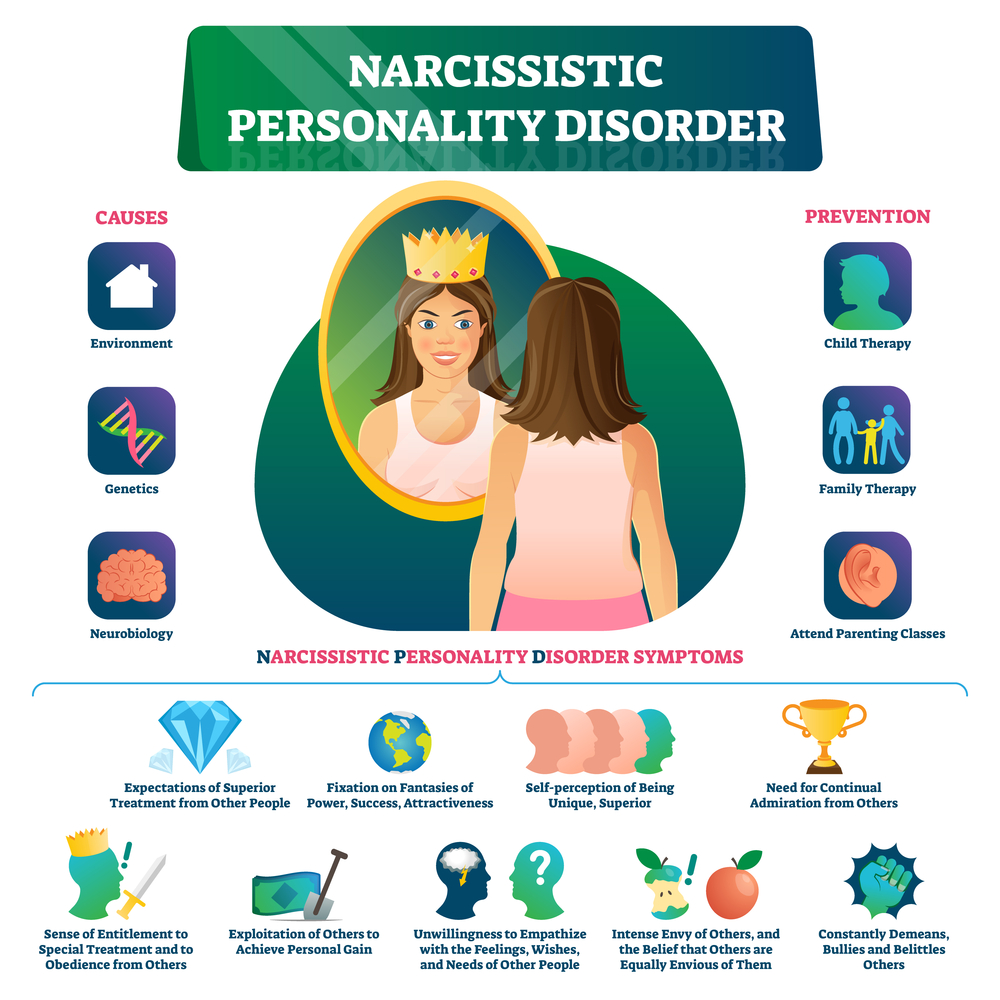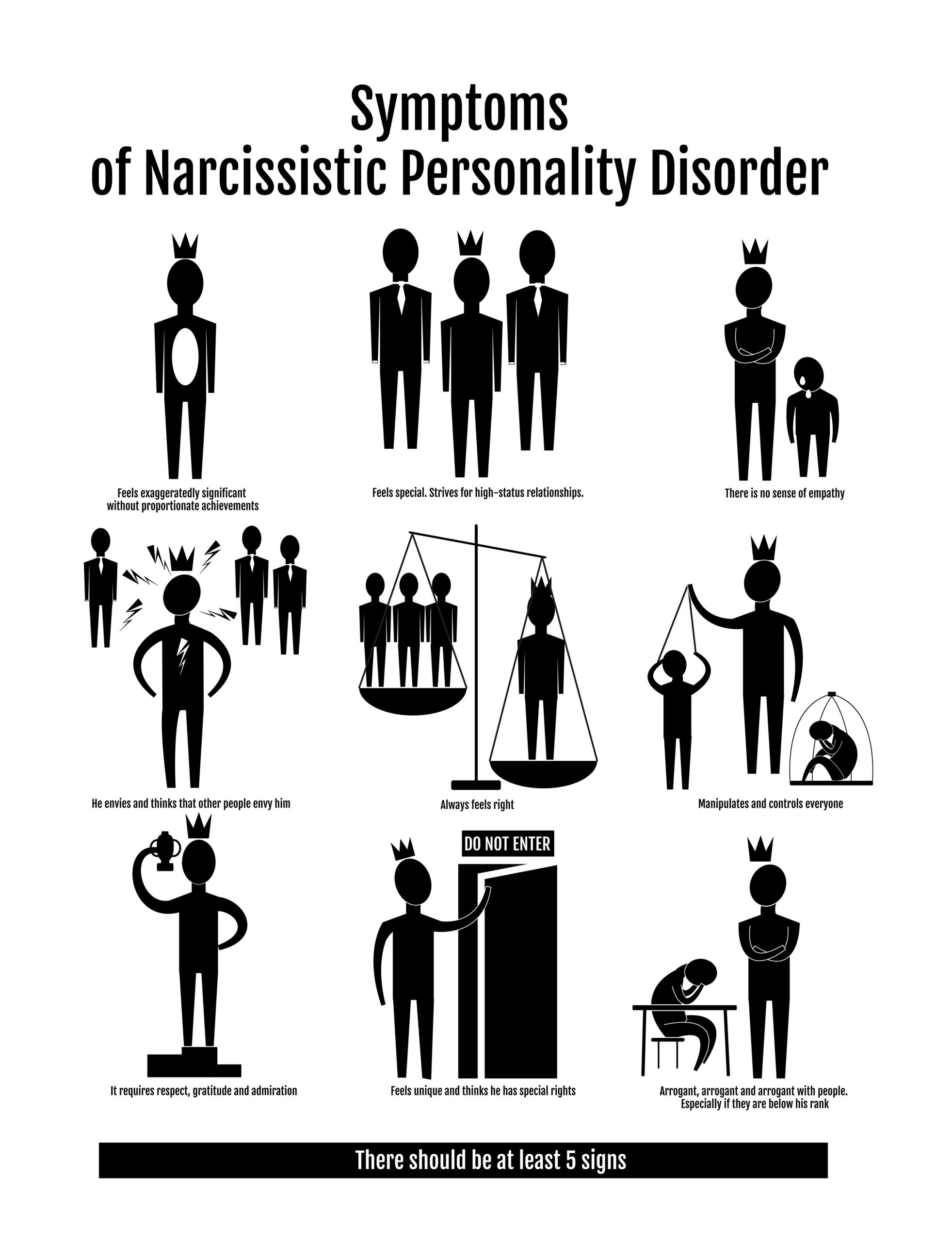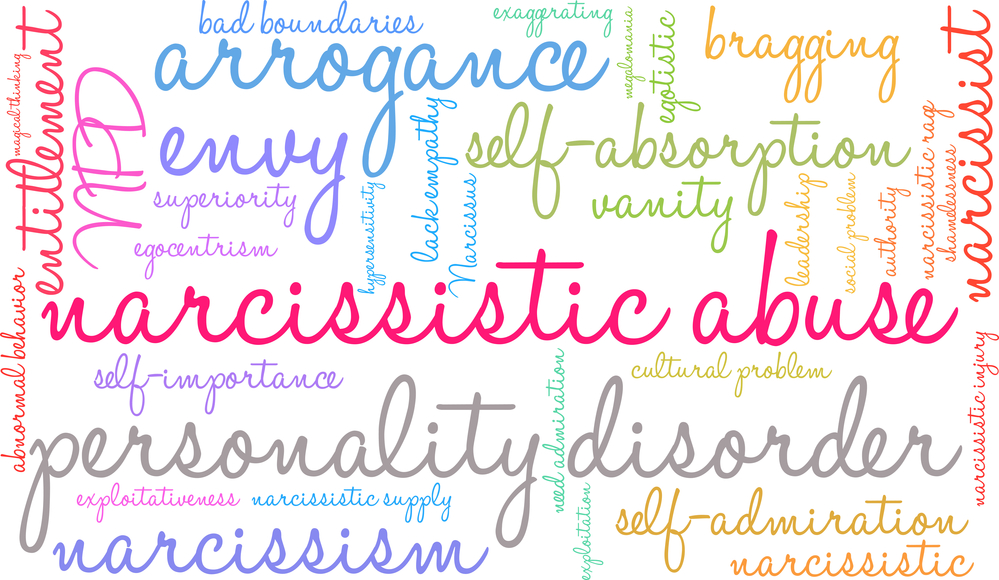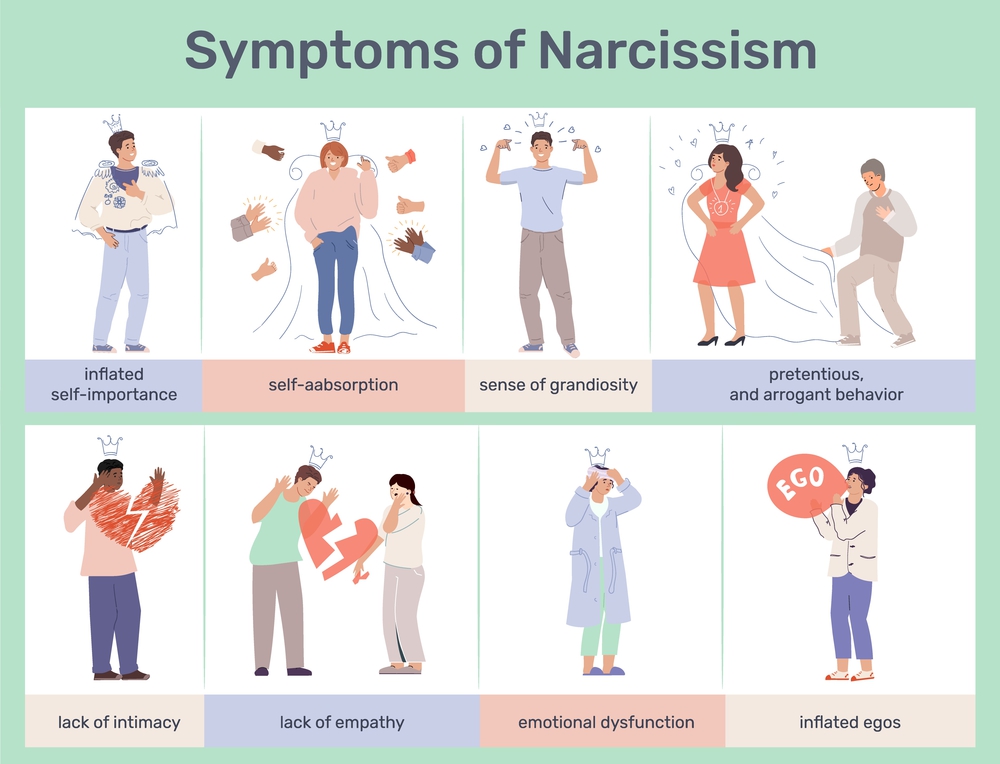Narcissist Apology: Decoding the False Contrition
 Understanding the nature of an apology from someone with narcissistic traits can be a complex task. An apology is traditionally seen as a statement of remorse for wrongdoing, accompanied by a sincere effort to make amends. When it comes to individuals with narcissistic tendencies, however, their apologies often serve a different purpose. Rather than genuine […]
Understanding the nature of an apology from someone with narcissistic traits can be a complex task. An apology is traditionally seen as a statement of remorse for wrongdoing, accompanied by a sincere effort to make amends. When it comes to individuals with narcissistic tendencies, however, their apologies often serve a different purpose. Rather than genuine […]Understanding the nature of an apology from someone with narcissistic traits can be a complex task. An apology is traditionally seen as a statement of remorse for wrongdoing, accompanied by a sincere effort to make amends. When it comes to individuals with narcissistic tendencies, however, their apologies often serve a different purpose. Rather than genuine remorse, their apologies may be a strategic move to maintain control or a façade of being faultless.
Narcissism involves a sense of grandiosity, a need for admiration, and a lack of empathy towards others. This can significantly affect how a person with narcissistic traits acknowledges their faults and expresses regret. Their apologies might be laced with excuses or followed by behavior that contradicts their words, which can confuse and emotionally exhaust the person on the receiving end. If you've ever dealt with this, you're not alone, and recognizing these patterns is the first step towards setting necessary boundaries.
Key Takeaways
- Narcissist apologies often lack genuine remorse and serve to manipulate or maintain a self-image.
- Recognition of toxic apology patterns is essential for setting boundaries.
- Understanding the nature and impact of narcissistic apologies can aid in personal healing and moving forward.

Understanding Narcissism
When you hear the term "narcissism," it usually refers to a pattern of thinking and behavior steeped in an inflated sense of self-importance and a desperate need for attention and admiration. At its core, narcissism impacts relationships deeply and can be clinically diagnosed as Narcissistic Personality Disorder (NPD).
Traits of Narcissistic Personality Disorder
Narcissistic Personality Disorder is characterized by a long list of traits that can be pretty disruptive to one's life and those around them. Here's a quick look at these defining features:
- A grandiose sense of self-importance
- Preoccupations with fantasies of unlimited success, power, or ideal love
- Belief that one is ‘special’ and unique and can only be understood by or associated with other special people
- Requires excessive admiration
- A strong sense of entitlement
- Tendency to be interpersonally exploitative
- Lack of empathy; unwillingness to recognize or identify with the feelings and needs of others
- Envy of others or belief that others are envious of them
- Arrogant, haughty behaviors or attitudes
Impact of Narcissism on Relationships
Your relationships may feel particularly strained if you're dealing with a narcissist. Here's the impact it has on those intimate connections:
- Difficulty accepting responsibility for any wrongdoing, which inhibits sincere apologies
- Tendency to manipulate or control others for personal gain or gratification
- Empathy deficits that impair understanding and validation of the partner's feelings
- Frequent conflicts due to the narcissist's sensitivity to criticism and contrasting need for affirmation
- Potential for emotional distance or volatility, reducing the likelihood of deep, meaningful bonds
Key Takeaway: Understanding the traits typical of Narcissistic Personality Disorder and recognizing its effects on relationships can empower you to navigate better the complexities involved with a narcissist.
 Characteristics of a Narcissist's Apology
Characteristics of a Narcissist's Apology
When a narcissist says they're sorry, it's often not the apology you might hope for. Their "I'm sorry" can lack genuine remorse and guilt and might not lead to a change in behavior.
The Empty Apology
- Lack of Sincerity: A narcissist might say, "I'm sorry you feel that way," which places the onus of the hurt feelings on you rather than taking responsibility for their actions.
- No Real Intention to Change: Their apologies are typically void of a commitment to making things right or not repeating the behavior.
Key takeaway: If an apology feels hollow and doesn't come with a sincere effort to correct the behavior, it may be empty.
Common Patterns in Fake Apologies
- Words vs. Actions Mismatch: Narcissists' apologies are often contradicted by their consistent behavior that caused the issue in the first place.
- Manipulative Strategies: In their fake apologies, you might notice a pattern of them using guilt to deflect the focus from their misconduct.
- List of Excuses: They may provide a laundry list of reasons why their behavior was justified instead of showing they understand why they need to apologize.
Key takeaway: Keep an eye out for discrepancies between what's said and what's done, manipulation tactics, or a tendency to make excuses rather than showing genuine remorse.

Recognizing Toxic Apology Patterns
In toxic relationships, apologies are often manipulated to entrench power imbalances further. Detecting these unhealthy patterns is crucial for your emotional well-being.
Conditional Apologies
Conditional apologies are laced with terms that shift blame to you, the recipient. They usually follow a format that negates the sincerity of the apology.
- Example Structure: "I’m sorry you feel that way, but..."
- Key Issues:
- Blame-Shifting: The onus is put on your feelings, not the action itself.
- Justification: The "but" often introduces a reason that minimizes the offense.
Key Takeaway: If an apology puts conditions on your feelings or the situation rather than addressing the behavior, it may be manipulative.
Phantom Apologies
Phantom apologies are elusive and lack acknowledgment of any specific wrongdoing. They diffuse responsibility and leave you questioning the validity of your feelings.
- Core Characteristics:
- Vague: It avoids specifics, preventing accountability.
- Dismissive: It trivializes your experience without validating it.
Key Takeaway: When an apology doesn't directly address the hurt caused and is vague, it might not be a genuine attempt at reconciliation.
 The Cycle of Abuse and Apologies
The Cycle of Abuse and Apologies
In relationships plagued by narcissistic abuse, the cycle of mistreatment and remorse can be particularly convoluted. This section examines the dynamics within this destructive pattern.
Trauma Bonds
Trauma bonds are powerful emotional connections that form between an abuser and the victim due to the cycle of abuse. This attachment is strengthened by intermittent positive reinforcement amidst the abuse.
- Characteristics of a Trauma Bond:
- Intense emotional attachment despite the abusive behavior
- A desire to support the abuser, often against your own best interest
- Difficulty leaving the relationship despite recognizing its toxicity
Key Takeaway: Recognizing a trauma bond is crucial; it's the first step towards seeking help and breaking the cycle.
Inconsistent Reinforcement
Inconsistent reinforcement within the cycle of abuse creates an unpredictable pattern that can keep you emotionally invested.
- Patterns of Inconsistent Reinforcement:
- Positive Reinforcement: Occasional kindness or apologies after abuse, which provide temporary relief.
- Negative Reinforcement: Withholding abuse or negative consequences, which also strengthens the bond to the abuser.
What You Can Do:
- Keep a record of both abusive incidents and apologies to identify patterns.
- Seek support from friends, family, or professionals to gain perspective.
Key Takeaway: Understanding inconsistent reinforcement empowers you to anticipate and navigate the cycle more effectively.
Effects of Narcissistic Apologies on the Victim
When a narcissist apologizes, it often lacks sincerity and accountability, leading to a complex mix of emotions for you, the victim. Understanding these effects can assist you in navigating your responses and maintaining your well-being.
Erosion of Trust
- Frequency and Sincerity: If you've received multiple apologies that feel hollow or insincere, it's natural for your trust to erode over time. Narcissistic apologies might come frequently but often lack the depth of true remorse.
- Patterns of Behavior: You might notice a pattern where the offender doesn't change their behavior, making their apologies feel like a strategy rather than a genuine admission of fault.
Key takeaway: Pay attention to patterns rather than words to protect your trust is essential.
Emotional Consequences
- Mixed Emotions: You may experience a range of emotions, including relief, confusion, and hope, when a narcissistic apology is given, followed by disappointment and anger when you realize the change isn't real.
- Impact on Well-being: Over time, these emotional roller coasters can chip away at your emotional well-being, leading to stress and anxiety.
Key takeaway: Recognize the emotional toll these apologies can take and prioritize self-care to protect your well-being.
Boundaries and Self-Care
When dealing with a narcissist's apology, it's vital to prioritize your well-being. To maintain your emotional health, it's essential to establish boundaries and explore recovery options.
Setting Healthy Boundaries
Know Your Limits: Understanding what you're comfortable with and where you draw the line is essential.
- Identify behaviors you can tolerate and those you can't.
- Communicate these boundaries clearly to the narcissist.
- Be prepared to enforce them, even if it means taking space for yourself.
Key Takeaway: Firm boundaries are the foundation of self-care; stick to them.
Therapy and Recovery Options
Seek Professional Help: Pursuing therapy can guide you on your path to recovery.
- Consider different types of therapy, such as cognitive-behavioral therapy (CBT) or dialectical behavior therapy (DBT).
- Support groups can offer a sense of community and shared experience.
- Professional therapists can tailor a recovery plan that suits your personal needs.
Key Takeaway: Therapy can equip you with strategies to heal and reinforce your emotional defenses.
Communicating with a Narcissist
Engaging in dialogue with a narcissist requires understanding their tendency to seek control and resist compromise. Your approach can shape the interactions for better outcomes.
When to Cooperate
- Assess the situation: Is the outcome critical to your goals? If it aligns with your objectives, cooperation might be beneficial.
- Set clear boundaries: Know your limits to prevent overreach from the other party and maintain a healthy distance.
Key takeaway: Only choose to cooperate when it matches your needs and ensure your boundaries are respected.
Handling Conflicts
- Use calm assertiveness: Approach conflicts with a steady voice and firm stance without aggression.
- Offer options: Present multiple solutions to demonstrate flexibility, while steering the conversation towards mutual benefit.
Key takeaway: Manage conflicts by being assertive but composed, and aim for resolutions that respect your position.
Moving Forward After Narcissistic Abuse
Recovery from a narcissistic relationship involves prioritizing self-care and rebuilding the trust that was eroded. It is your journey to regain strength and well-being.
Healing and Relief
After the tumultuous experience of a narcissistic relationship, finding healing and relief is paramount. Acknowledge the emotional hurt and allow yourself to feel and express your emotions.
- Create Space for Emotional Healing: Ensure you have a support system that includes understanding friends, family, or a therapist.
- Self-Compassion: Treat yourself with kindness, as you would a friend in the same situation.
Key Takeaway: Cultivating a supportive environment and practicing self-compassion are critical steps for healing.
Rebuilding After a Narcissistic Relationship
Rebuilding your life post-narcism is rediscovering your self-worth and learning to trust again.
- Re-establish Boundaries: Clearly define your limits to protect your well-being.
- Discover Self-Identity: Engage in activities that reinforce your sense of self outside of the relationship's influence.
- Cultivate New Interests: This can help reinforce your independence and self-esteem.
- Building Trust: Start with small steps. Trust yourself first, then slowly extend trust to others.
Key Takeaway: Establishing boundaries and indulging in personal interests are the cornerstones of rebuilding a healthier life after narcissistic abuse.
Debunking Myths About Narcissistic Apologies
When you hear the word 'apology' from a narcissist, it can often be mistaken for actual remorse. This section casts light on the reality behind a narcissist's apology, rescuing the truth from common misconceptions.
Excuses vs. Genuine Remorse
Key takeaway: A narcisst's 'apology' often masquerades as remorse but is packed with excuses.
Narcissistic apologies can be deceptive. You might think you’ve received genuine remorse, but listen closely. The subtle shift from "I'm sorry I hurt you" to "I'm sorry you felt hurt because of what I did" marks the difference between an apology laced with excuses and one steeped in true regret. Here's a snapshot:
- Genuine Remorse: "I'm sorry I hurt you, and I will make amends."
- Excuses in Disguise: "I'm sorry you're upset; I was just being honest."
In dealing with a narcissist, you'll often encounter a pattern where excuses overshadow the essence of an apology.
The Myth of the Apologetic Narcissist
Key takeaway: Expecting a heartfelt apology from a narcissist may lead to disappointment, as their self-focus hinders authentic contrition.
It's a common belief that healthy people apologize and narcissists can too, with the right push. However, this is a myth. Narcissists may offer what sounds like an apology, but it lacks the sincere intention to rectify the situation and is often devoid of a plan to prevent future harm. Here's the catch:
- Narcissist's Apology: A self-serving statement, aiming at maintaining their facade.
- Healthy Apology: A clear expression of regret with steps toward making amends.
Remember, it's not just about saying "I'm sorry." A true apology from anyone, including a narcissist, would involve acknowledging the impact of their actions and taking concrete steps to make things right. However, a narcissist's focus on self often prevents them from reaching this level of remorse and restitution.
Preventing Future Hurt
When dealing with a narcissist, it's crucial for you to recognize harmful patterns early and to reinforce your connections with healthy, narcissism-free bonds.
Identifying Hurtful Behavior Early
To safeguard yourself from future emotional injuries, you need a keen eye for red flags that signal narcissistic tendencies. Here’s what to be on the lookout for:
- Lying: You should be aware of consistent dishonesty, as this erodes the foundation of trust.
- Manipulation: Notice if your feelings are being played with to serve someone else's agenda.
Key Takeaway: Trust your gut when behavior feels hurtful, and don't shy away from addressing it.
Building Strong Relationships without Narcissism
Creating a strong relationship requires effort and genuine care, both of which are at odds with narcissistic behavior. Consider these steps:
- Cultivate Empathy: Strive for a deep understanding and consideration of others' feelings.
- Practice Clear Communication: Ensure that you always express your thoughts and feelings openly, and invite others to do the same.
Key Takeaway: Healthy relationships are based on mutual respect and open dialogue.
Frequently Asked Questions
In navigating the complex territory of apologies from someone with narcissistic traits, it's essential to discern sincerity and protect your emotional well-being.
How can you identify a genuine apology from a narcissist?
A true apology from a narcissist may be rare, but when it happens, it's characterized by clear accountability without excuses and a sincere commitment to change behavior. Here's your key takeaway: Genuine remorse will come with consistent actions over time, not just words.
Is it common for a narcissist to seek an apology from others?
Yes, individuals with narcissistic tendencies often expect others to apologize, as they have a heightened sense of entitlement and are hypersensitive to perceived slights. Remember, it's not just about the frequency but also the reasoning behind their demand for an apology that matters.
What should you consider before accepting an apology from someone with narcissistic tendencies?
Consider the person's past behavior and your own boundaries. Accepting an apology doesn't mean you forget; it means you're willing to see if their actions align with their words moving forward. As a strategy, keep an eye out for concrete changes rather than just verbal promises.
In what ways might a narcissist respond to being ignored after they've apologized?
A narcissist may react with anger, insult, or even a cold withdrawal if their apology is ignored, as this challenges their self-image. Understand that their response is more about them than it is about you.
Are there particular patterns in the apologies of narcissists when it comes to infidelity?
Apologies from narcissists for infidelity often contain justifications and minimization of their actions. Look for patterns where they play the victim or deflect blame as part of their 'apology.'
What are the characteristics of a narcissistic individual upon realizing they are no longer the center of attention?
When they're not the center of attention, a narcissist may display behaviors ranging from disinterest to disruptive actions to regain the spotlight. Keep this in mind: Their need to be the focal point often trumps the feelings of others.
Meet Jacob Maslow: Triumphing Over Narcissism and Embracing Mental Wellness
My journey through the complexities of mental health and dealing with a narcissistic ex-partner has been a challenging yet enlightening one. As a therapy veteran and someone who manages my mental health with Lexapro, I've recently embraced the support of BetterHelp to further my healing.
My personal experience with my ex-partner, who suffers from severe narcissism, has profoundly impacted my life. Her refusal to cooperate with court-ordered shared custody and reunification therapy, especially after our children just began to overcome alienation, has been a significant struggle. Her behavior escalated as she pursued affairs with community leaders, followed by smear campaigns—a pattern typical of narcissistic behavior.
As she aged, I observed an intensification of her narcissistic traits, coinciding with changes in her physical appearance. This transformation has led to a complete alienation from our kids in the past year, as she continually defies any custody orders and agreements.
Before this, we maintained a close relationship, living in two households for years after our separation. The sudden shift to being cut off from my children about nine months ago has been a profound challenge for my mental health.
I find solace in taking long walks daily, which helps me clear my mind and cope with the ongoing court battles and her consistent disregard for court orders.
Through writing articles about mental health and narcissism, I aim to support those dealing with similar challenges with narcissistic partners. I firmly believe that anyone can overcome their mental health issues with the proper support and understanding. Additionally, I run a legal site dedicated to helping others facing non-compliance from spouses in court matters and the weaponization of children instead of cooperative parenting.
My story is one of resilience and continuous learning. I share my experiences and insights to help others navigate the turbulent waters of dealing with narcissism and maintaining mental health.


